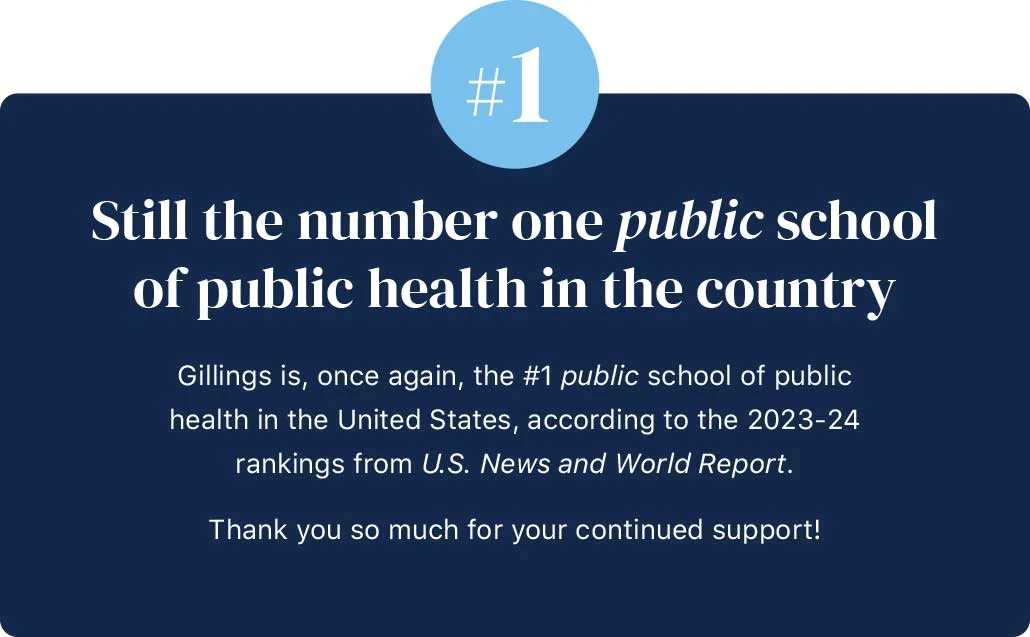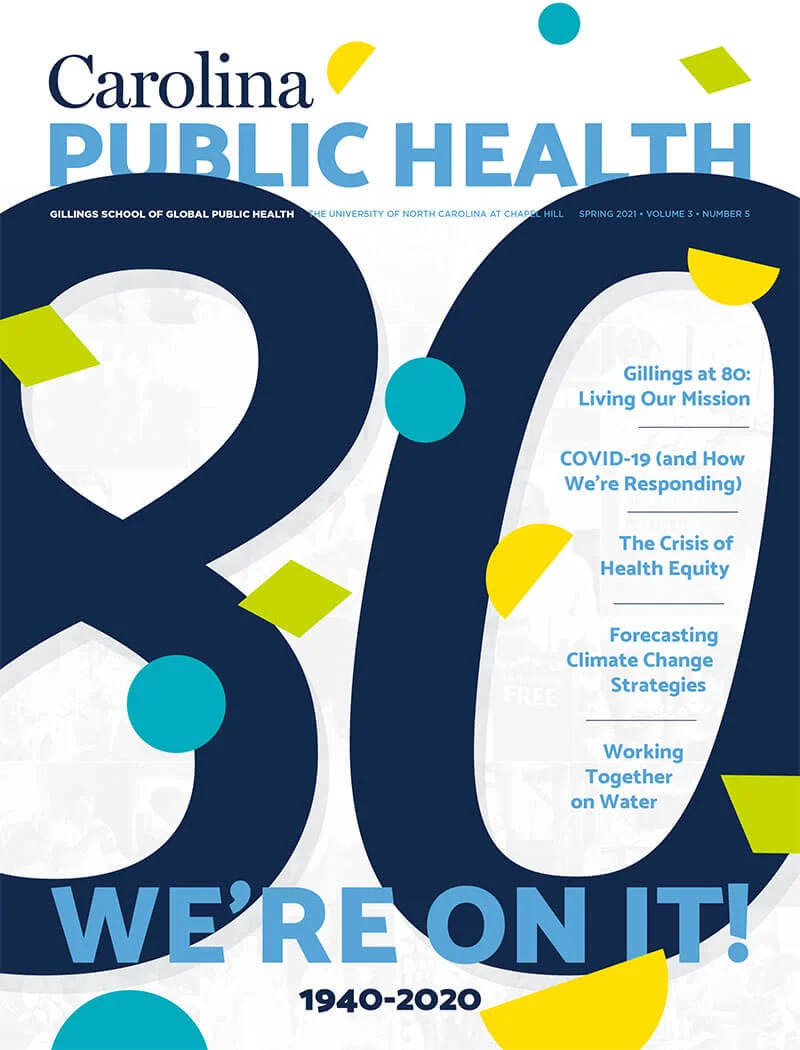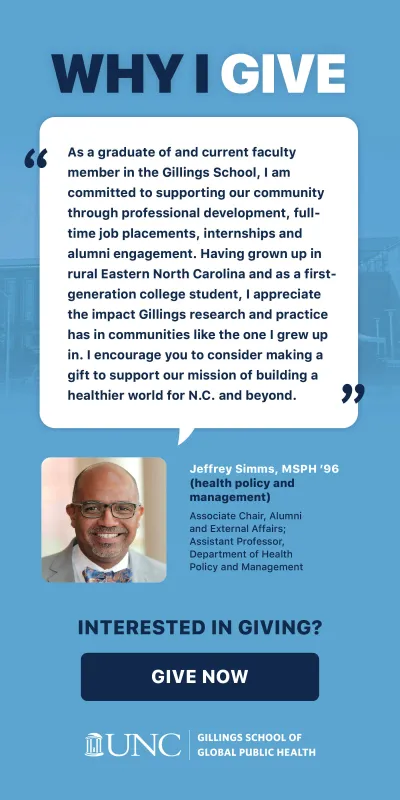Partnerships with purpose: Working together on water
Water Institute leader wants to mobilize expertise across UNC, strengthen global partnerships
Gillings professor Aaron Salzberg, PhD, is bringing his international water policy experience and conflict resolution skills to the table to help expand The Water Institute’s role in in global water security.
Salzberg, the Don and Jennifer Holzworth Distinguished Professor of environmental sciences and engineering, took the helm of The Water Institute in late 2019. Before joining UNC, Salzberg was the lead water adviser to five United States Secretaries of State, negotiated major international agreements, and created partnerships that strengthened the United States’ and capacity of communities around the world to address water challenges.
The Institute is respected globally for its policy-relevant research around drinking water, sanitation and hygiene (WaSH) and its annual Water and Health Conference. Salzberg believes The Water Institute is well-positioned to become a world leader on water if UNC can fully leverage its faculty expertise and strengthen key partnerships with regional and global organizations.
"The Research Triangle is one of the most water-rich areas in the world in expertise. If we can unite ourselves, the world will come to us."
“We are building off of an institution that has a great reputation on drinking water and sanitation, and we need to look toward getting this whole region to work on providing services where water is more scarce or suffers from contamination, drought and climate change,” Salzberg says. “How do we make this campus the No. 1 place in the world to work on and solve complicated water problems? We have tremendous capacity. There are 60-70 faculty connected to water in some way and others who could be. And the Research Triangle is one of the most water-rich areas in the world in terms of expertise. If we can unite ourselves, the world will come to us.”
He envisions The Water Institute serving as a university-wide platform for solving complex water problems by mobilizing the expertise, knowledge and research that the University has to offer – not only in environmental sciences but also in the business school, the law school, humanitarian studies, engineering, health and other areas of study. In addition to leveraging partnerships across campus, Salzberg wants to strengthen outside relationships and expand UNC’s reach across the globe.
“Water is a lens through which we can inspire people to solve human problems,” he says. “I’m here to change the way the world works on water, but I’m also here to change the way the University works. Wouldn’t it be great if we could mobilize everything we have to offer to solve critical conflicts across the world – and put these resources in people’s hands?”
Annual Water & Health Conference
Practitioners, investors and the research community engage each other directly to find solutions to deliver sustainable water and sanitation services for the more than one billion people across the world who currently live without it.
3,500+ participants • 140+ countries




